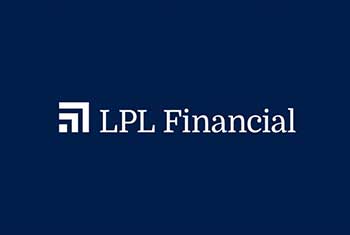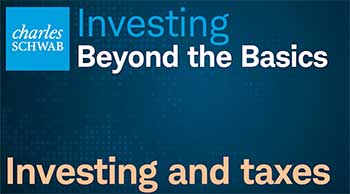Investors today are spoiled for choice when it comes to investment platforms. Two of the biggest names in the space are LPL Financial and Charles Schwab. Both companies offer brokerage and advisory services, but they have some key differences that investors should understand.
This comprehensive guide examines the pros, cons, features, fees, and other factors to consider when deciding between LPL Financial and Charles Schwab.
A Brief Comparison Table
| Feature | LPL Financial | Charles Schwab |
| Account Minimum | $0 | $0 |
| Stock & ETF Trades | $0 for self-directed accounts | $0 online trades |
| Mutual Fund Trades | $25-$35 transaction fee | Over 3,000 no-transaction-fee funds |
| Advisory Fees | 1-2.5% of AUM | 0.28%-0.80% of AUM |
| Account Fees | Up to $150 annually | $0 annual fees |
| Broker Assisted Trades | Varies based on affiliation | $4.95-$74.95 per trade |
| Research & Tools | Proprietary platform for advisors | Leading website and tools for retail traders |
| Customer Service | Mixed reviews | 24/7 support and highly rated |
| Locations | Support offices for advisors | 420+ branches nationwide |
| Mobile App | Decent reviews | Rated #1 by Barron’s |
| Best For | Working with an independent advisor | Self-directed trading and research |
Overview Of LPL Financial
LPL Financial is one of the largest independent broker-dealers in the country.
Here are some key things to know about LPL:

- Over 19,000 financial advisors use LPL Financial’s platform to serve investors.
- Offers a range of investment products including stocks, bonds, mutual funds, ETFs, and more.
- Provides brokerage and advisory services, retirement plan solutions, tools, and technology for advisors.
- Advisors have flexibility to operate independently or affiliate with LPL branches.
- Charges fees based on trading activity and assets under management rather than commissions.
Pros of LPL Financial
- Large selection of investment products and services
- Technology and support for independent advisors
- Flexibility in compensation models for advisors
- Corporate RIA for fee-based advisory services
Cons of LPL Financial
- Account maintenance and transfer fees for brokerage accounts
- Mixed reviews on customer service and responsiveness
- Higher fees than some discount brokers
- Complex fee structure
Overview Of Charles Schwab
Charles Schwab is one of the biggest discount brokers and a major player in the investment industry.
Here’s a short summary:
- Provides services for over 32 million brokerage accounts.
- Offers trading and support for stocks, options, funds, bonds, futures, and more.
- Access to in-house advisory programs and customized portfolios.
- Network of around 420 branches nationwide.
- Charges $0 for online equity and ETF trades.

Pros of Charles Schwab
- Low trading commissions on stocks, ETFs, and options
- Wide range of account types including IRA, 401k, trusts
- Excellent customer service and support
- Brick-and-mortar locations across the U.S.
- User-friendly website and trading platforms
Cons of Charles Schwab
- Limited selection of no-transaction-fee mutual funds
- Lacks proprietary research offered by some firms
- Higher fees for advisory services compared to competitors
- No futures, forex, or crypto trading
Comparing Fees And Pricing
When evaluating investment platforms, fees are often one of the top considerations. Here’s an overview of how LPL and Schwab compare:
LPL Financial
- $0 stock and ETF trades for self-directed brokerage accounts
- Advisory fees from 1-2.5% of assets under management
- Account fees up to $150 annually
- Maintenance fees, transfer fees, and other account charges
Charles Schwab
- $0 online stock, ETF, and options trades
- $4.95-$74.95 per trade for broker-assisted transactions
- Advisory fees from 0.28%-0.80% of AUM
- $0 account maintenance fees
- Low margin rates starting at 6%
The pricing structure at Charles Schwab is generally more straightforward with lower commissions and fewer ancillary fees. LPL offers some free trading but levies account fees and charges for transfers, while Schwab has no annual account fees.
Range Of Investment Products
Both LPL and Schwab allow you to invest in stocks, bonds, mutual funds, ETFs, and more. However, there are some key differences in the specific products available.
LPL
- Access to over 575 no-load mutual funds
- Robust mutual fund screener with 6,800+ funds
- CDs and corporate, municipal, and government bonds
- Advisory portfolios and separately managed accounts
Charles Schwab
- Over 3,000 no-load, no-transaction-fee mutual funds
- Screeners for stocks, funds, ETFs, and fixed income
- New issue CDs, bonds, preferred securities
- Fractional share investing available
The mutual fund selection is broader at Schwab in terms of no-fee funds. Schwab also offers fractional share trading which allows smaller investments in stocks. Both have extensive screening tools, but LPL may have an edge for fixed income products.
Also Read: Comparison Between Captrust And Fisher Investments.
Investor Resources And Technology
The trading platforms, research capabilities, mobile apps, and investor education resources vary quite a bit between these two brokers.
LPL Financial
- Proprietary trading platform for advisors and clients
- Robust portfolio management system
- Access to LPL research and third-party content
- Limited seminars and events for investors
Charles Schwab
- Web and mobile platforms rated #1 by Barron’s
- StreetSmart Edge and StreetSmart Central trading tools
- Equity ratings, market data, and proprietary research
- Education hub with videos, articles, and tutorials
Hands down Charles Schwab offers superior trading platforms and mobile access for investors. The educational content is far more extensive including live events, videos, courses, and more. LPL directs resources toward supporting advisors rather than retail traders.
Customer Support
Having access to great customer support can make a big difference in the investing experience. Here is how LPL and Schwab compare:
LPL Financial
- Support channel varies depending on affiliation
- Mixed reviews on long wait times
- Client experience team for advisors
- Limited Saturday support hours
Charles Schwab
- 24/7 support by phone, chat, email, and branches
- Consistently highly rated support among brokers
- Brick-and-mortar locations across the U.S.
- Support available in 140 languages
Charles Schwab is the clear winner when it comes to customer service. They offer around-the-clock assistance across multiple channels, and have received stellar ratings for their supportive, knowledgeable staff. LPL support varies more depending on your affiliation.
Also Read: Comparison Between LPL Financial And Fidelity.
Security And Protection
With investing accounts holding your sensitive personal and financial information, security is crucial. LPL and Schwab both offer standard protections:
- FDIC insurance on cash balances
- SIPC coverage up to $500,000 on investments
- Encrypted websites and mobile apps
- Biometric and two-factor authentication
- No account minimums to receive protections
Account protection on cash and investments is identical. Schwab has faced some recent lawsuits related to breach of duties and insufficient protections. However, both firms appear to take reasonable security precautions on the whole.
Watch this video about LPL Financial!
Frequently Asked Questions (FAQ)
LPL’s biggest competitor is Raymond James, another independent broker-dealer supporting financial advisors. But LPL is larger serving over 19,000 advisors Vs. Raymond James’ 8,200.
Yes, LPL Financial is regulated by FINRA, the SEC, and other bodies. Investing through LPL registered advisors features standard protections like SIPC insurance and security features to safeguard your accounts.
Compared to discount brokers, LPL’s account fees, trading commissions, and advisory charges tend to be higher. But fees are competitive for full-service advisory relationships.
For working with an independent advisor, LPL may be better than Fidelity. But Fidelity wins for DIY investors prioritizing low fees and commission-free trading.
Also Read: Comparison Between Merrill Lynch And Northwestern Mutual.
The Verdict
When comparing LPL Financial Vs. Charles Schwab, there are a few key takeaways for investors:
- LPL caters to independent financial advisors, while Schwab focuses on retail traders
- Schwab has superior trading platforms, research, and far lower fees
- But LPL offers advisor portfolio management and retirement services
- For DIY investors, Schwab likely provides better value and services
- Working with a LPL advisor makes sense to access portfolio and planning guidance
Ultimately, your preference between these two brokers depends largely on your investing approach. For hands-on traders, Schwab cannot be beat on fees and tools.
But for comprehensive financial planning with an advisor, LPL Financial could be the better fit. Analyze the services, pricing, and products to determine which platform matches your needs.
